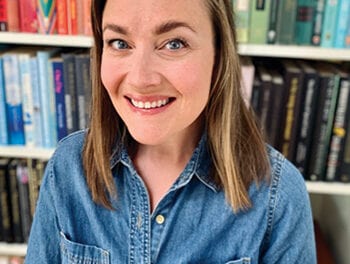It struck me the other day, how when something becomes familiar, we tend to minimize it. I was thinking about a recent trip “down the hill,” about the first time I heard that expression after moving up here. It’s like the opposite of exaggeration, normalizing something as a means of showing it belongs to us. And it’s not unique to mountain dwellers; consider the Brits’ affectionate referrals to skipping “across the pond” or how something really, really good is reduced to “sliced bread.”
Most children don’t imagine small lives for themselves, and so, even as we grew into a more realistic perspective about the world and its workings, I’m sure some of that bigness is preserved. Great things were expected from us or we expected great things for ourselves. And then living—day in and day out—becomes familiar, and it’s depressingly easy to discredit the bigness of our lives.
For those who read my newsletter, you know I’ve started a new little art project wherein I document my days, not with much philosophical meandering, but mostly record-keeping. The idea was born after touring a history museum with my family this summer and finding fascinating the pioneers’ logs. The entries charted the weather, food stores, traditions in the villages. The minutiae of their daily lives was unfamiliar and exciting, which led to a family conversation about historical preservation and, ultimately, how we consider our own lives.
“I have built a life—a large one.”
These days, if you see me, I’m probably driving down the Parkway, handing out purse snacks to my children (and normally one or two extra kids) in the back seat. We are a blur from point A to point B, and sometimes, somehow, I have to be at both points A and B at the same time. My days are full of laundry and lunch-making and errands for that one thing that someone forgot to mention they needed the last time I placed a Target online order. It is busy and sometimes mundane, or at least redundant. Someone asks, “How’s life?” and I’m not exactly sure what to say besides “Normal.”
But what if every day, regardless of what was in it, was worth mentioning? And what if that was how we lived? And so, to challenge myself to an attitude adjustment, I began my own daily log. I write down what the weather is like and how we filled our minutes. Sometimes I get into how it makes me feel or what it makes me think, but not always. Every entry is accompanied by a photo—a real photo, with my real camera, not something thoughtlessly snapped on my phone—usually of a corner in our home or an artifact that serves as anchor to the day.
I’ve been doing this for nearly two months now, and I’ve learned two very important lessons so far. The first is: I have built a life—a large one. Even in the moments when it feels like you’re waiting for the next big thing or hoping to uncover a purpose, you already have a life, which is comprised of days that are probably not only full but very rich, if you’re paying attention. Daily tasks like chores and routines are full of purpose and divine inspiration, if that is how you consider them. By documenting the laundry I hung on the line, or the vegetables I chopped in the afternoon in preparation for dinner, I have claimed their value and importance.
But the second thing I’ve learned about myself—and maybe about society in general—is this tendency to minimize the familiar. I don’t mean this in a negative way. I mean, the familiar becomes endearing. Our trusty favorites become “this old thing,” or our charming heirlooms are “silly” or “tiny,” but what we really mean is: it belongs to me. When I “head down the hill,” this manner of life in which I have to cover great steep distances is only commonplace because I own it.
In the same way, it is the simple parts of these days I’ve recorded that are so personal to me. Not only does it make me cherish the little moments, I’ve found myself encouraged to capture even more smallness. I make sure to leave a minute or two early so I can drive slowly around my favorite curve at an aspen grove just starting to turn color. I pick up the grocery store roses on sale and take them home to trim and fold and bend them into something elaborate and bright on my table. I take out my fancy glasses for sparkling water, and I’ve instituted a “reading happy hour” with my girls on the weekends—which is really just me tricking them into doing their required school reading, but we’ve made it special.
And I thought for hours about this little old column, and I carved out the time to put ink to paper (theoretically—all my work is digital) because it is mine. I hope today, you make a note on purpose about what’s yours.



